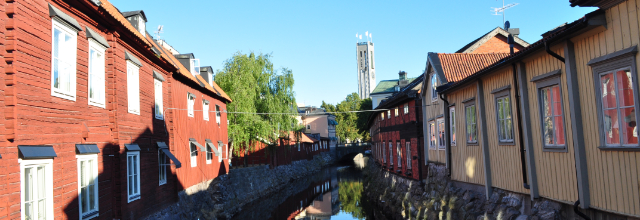

ISORC has become established as the leading event devoted to state-of-the-art research in the field of object/component/service-oriented real-time distributed computing (ORC) technology. Celebrating the 24th anniversary since its foundation in 1998, ISORC continues the trend of providing an international forum for researchers and industry experts to exchange and share their experiences, ideas, latest research results on all aspects of ORC technology. Following the previous years’ experience, ISORC will continue to employ the double-blind review process and a rebuttal phase this year.
Ten best selected papers based on the review process will be invited to submit extended versions to the special issue of the Journal of Systems Architecture (JSA) on Real-Time Distributed Computing.
Main Track:
- Submission deadline:
February 12, 2022(extended) (anywhere on earth) - Rebuttal period:
March 23-25, 2022 - Acceptance notification:
April 4, 2022 - Camera-ready papers: April 20, 2022
- Registration for the authors of accepted papers: April 24, 2022
- Conference: May 17-18, 2022
IEEE ISORC 2022 invites high-quality papers on all aspects of ORC technology, including, but not limited to:
- Distributed Computing
- Cloud/Edge/Fog Computing
- Internet of Things (IoT)
- Real-Time Scheduling Theory
- Real-Time Networks
- Resilient Cyber-Physical Systems
- Self-Aware Computing Systems
- Energy-Efficient Systems
- Autonomous Systems (e.g., Autonomous Driving)
- Machine Learning for Embedded and Cyber-Physical Systems
- Real-Time Deep Learning Inference
- Optimization of Time-Sensitive Applications
- Operating Systems and Middleware for ORC technology
- Security and Privacy for ORC technology
- Applications based on ORC technology, for example, medical devices, intelligent transportation systems, industrial automation systems and industry 4.0, smart grids, multimedia processing, and web/mobile applications
IEEE ISORC 2022 invites papers in two categories. Submission guidelines for each category of paper are as follows:
Regular Research Papers: Papers should describe original work and be maximum 8 pages in length using the IEEE paper format. A maximum of two extra pages may be purchased.
Short Papers: Short research papers, 4 pages or less using the IEEE format, on real-time analytics are also invited, and should contain enough information for the program committee to understand the scope of the project and evaluate the novelty of the problem or approach. The short papers will be not be published in the IEEE ISORC proceeding.
Double blind:Following the previous years’ experience, ISORC will continue to employ the double-blind review process and a rebuttal phase this year.Following the previous years’ experience, ISORC will continue to employ the double-blind review process and a rebuttal phase this year.
The IEEE conference paper templates can be found here.
Please submit your contributions via EasyChair: https://easychair.org/conferences/?conf=isorc2022
General Chairs
- Saad Mubeen Mälardalen University, Sweden
- Song Han University of Connecticut, USA
- Jong-Chan Kim Kookmin University, South Korea
Program Chairs
- Mohammad Ashjaei Mälardalen University, Sweden
- Julie S Fant George Mason University, Virginia, USA
- Nan Guan City University of Hong Kong
Local Chair
- Anna Friebe Mälardalen University, Sweden
Publication Chair
- Matthias Becker Royal Institute of Technology, KTH, Sweden
Web Chair
- Leo Hatvani Mälardalen University, Sweden
Publicity Chairs
- Renato Mancuso Boston University, USA
- Yue Tang Northeastern University, China
Steering Committee Chairs
- Uwe Brinkschulte Goethe University of Frankfurt, Germany
- Rob Pettit The Aerospace Corp., USA
Finance Chair
- Leo Hatvani Mälardalen University, Sweden
Journal Special Issue Chairs
- Saad Mubeen Mälardalen University, Sweden
- Mohammad Ashjaei Mälardalen University, Sweden
- Matthias Becker KTH Royal Institute of Technology, Sweden